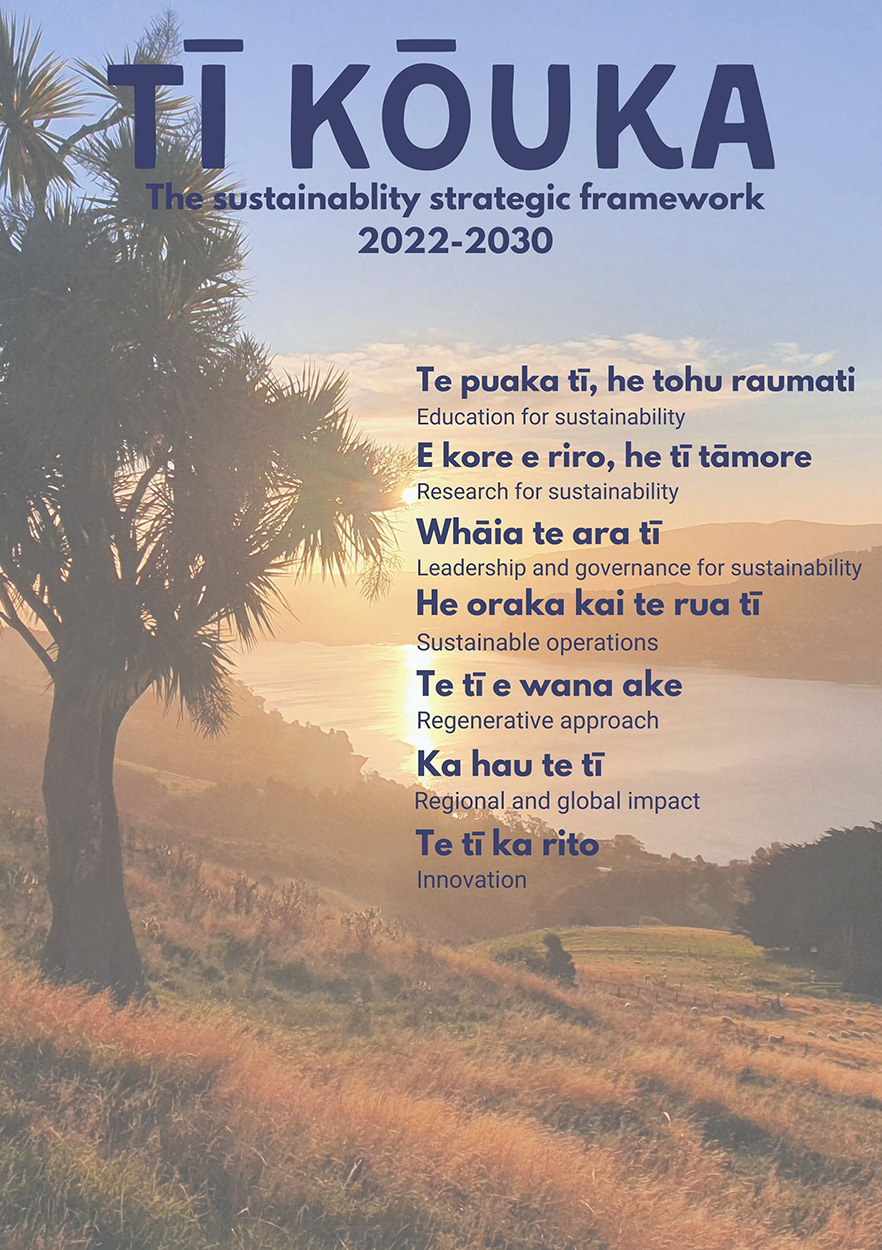Tī Kōuka 2030: The Sustainability Strategic framework
The University of Otago set out a commitment to a sustainability transformation in the Sustainability Strategic Framework 2017–2021. Since then, significant progress has been made, while at the same time expectations and the sense of urgency to make progress have heightened.
Tī Kōuka is the second iteration of the Sustainability Strategic Framework. While building upon the progress already made, Tī Kōuka provides direction for our sustainability transition though to 2030, in what the United Nations refers to as our decade of action. The process of developing this framework alongside the Office of Māori Development has been critical in shaping our vision of a sustainable future and Tī Kōuka acknowledges the significant value of mātauraka Māori in creating a more sustainable future.
The framework consists of three layers. The first layer, described in the image below, is a central metaphor communicating the areas of sustainability we need to develop, to create a thriving future-Tī Kōuka. The second, a further elaboration of the vision for sustainability in 2030. The third, an implementation plan describing how commitment to action will be created and made transparent.
The framework provides vision and direction. Localised action plans are where objectives, goals and performance expectations will be articulated and iterated as we progress.
Download the Sustainability Strategic Framework 2020–2030 (PDF)
The layout and design will be subject to further updates.

Background image: Ray O'Brien, via Wikimedia Commons.
